The Deep Roots of Chinese Cooking in Thai Cuisine
Discover how Chinese cooking has shaped the gastronomic evolution of Thai cuisine!
Discover the authentic in Asian cuisine food
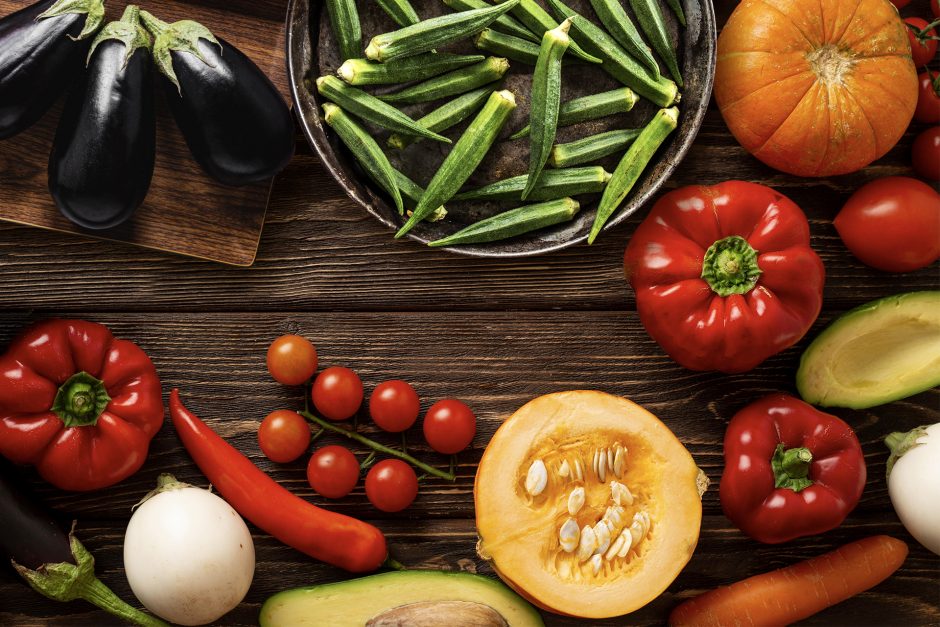
What’s a fruit and what’s a vegetable? If you say fruits are sweet and veggies aren’t—veggies like turnip, carrot and beet each have distinctive sweet flavours, while fruits like lemon and lime certainly aren’t sweet at all. Maybe it comes down to how we enjoy them? But if you’re a regular of Asian Inspirations, you know that with the right recipe, some fruits can be savoured both raw and cooked, like the coconut and pineapple; not to mention our many wholesome salads that feature both cooked and raw veggies.
So, how to tell?
In the world of botany, a fruit is the part of a plant that bears its seeds, grown from the plant’s ovary at the centre of its flower. Fruits are basically how plants spread their seeds to reproduce. Some develop colourful and juicy fruits that attract animals to eat them, and thus spread the seeds via poop. These are generally categorized as fleshy fruits. Other plants grow dry fruits that naturally dry out when matured, and open the seeds for the winds to carry off.
As for vegetables, the term has no actual meaning in botany, which basically just refers to a whole plant. Instead, parts of the plant are labelled such as the stem, root and leaves.
But of course, how we food lovers categorize our produce are largely cultural. The Chinese, for instance, have even further distinctions of vegetables: “Cai” which are leafy greens, “Gua” which are fleshy gourds, “Dou” which are beans, and “Shu” which are tubers like tapioca and potatoes that turn powdery when cooked.
So, unless you’re a botanist and a pedant, they can actually be both veggies and fruits, especially when savoured in a dish.
With all that in mind, here are 10 common vegetables that are considered fruits in botany:

Probably the most often mentioned in the veggie/fruit ‘debate’. Tomatoes are fleshy fruits of its vined plant. But perhaps because of its tender texture and complex sour flavour when cooked, it is more commonly ‘treated’ as a vegetable.
In fact, the ‘case’ once became so prickly in the US, their Supreme Court had to declare in 1893 that tomatoes should be taxed like a vegetable, because they are “usually served at dinner in, with, or after the soup, fish, or meats which constitute the principal part of the repast, and not, like fruits generally, as dessert”, said Justice Horace Grey.
Whichever term you prefer, be sure to try your tomatoes in a yummy Som Tum special, or this amazing teriyaki tofu bowl!
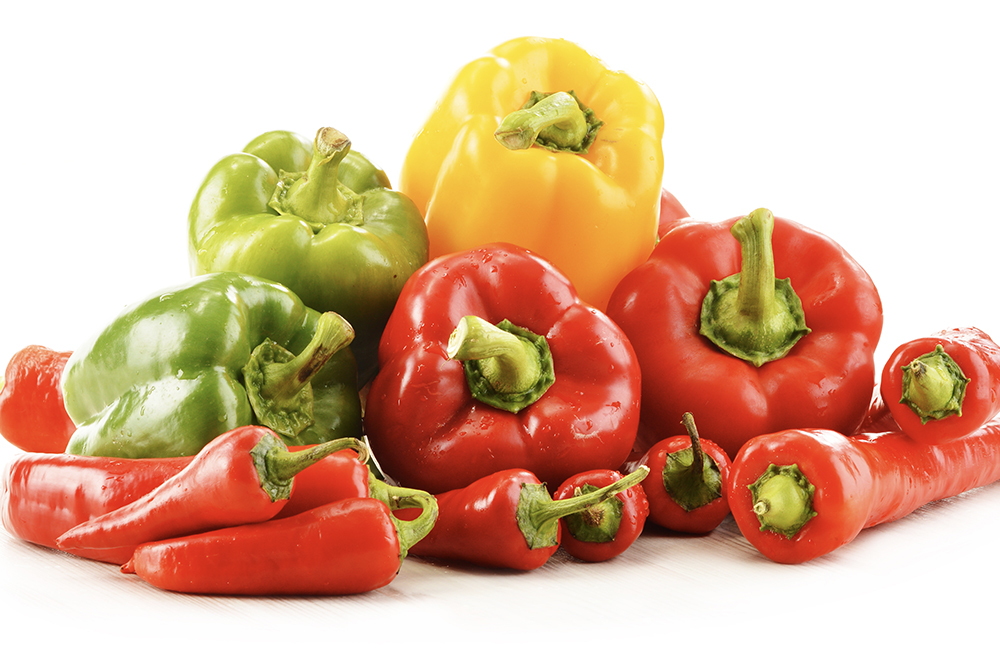
Chillies and peppers of all shapes and sizes, including the Southeast Asian darling bird’s eye chilli, and the Chinese favourite capsicum, are fruits.
Come learn how to best handle your chilli in the kitchen!
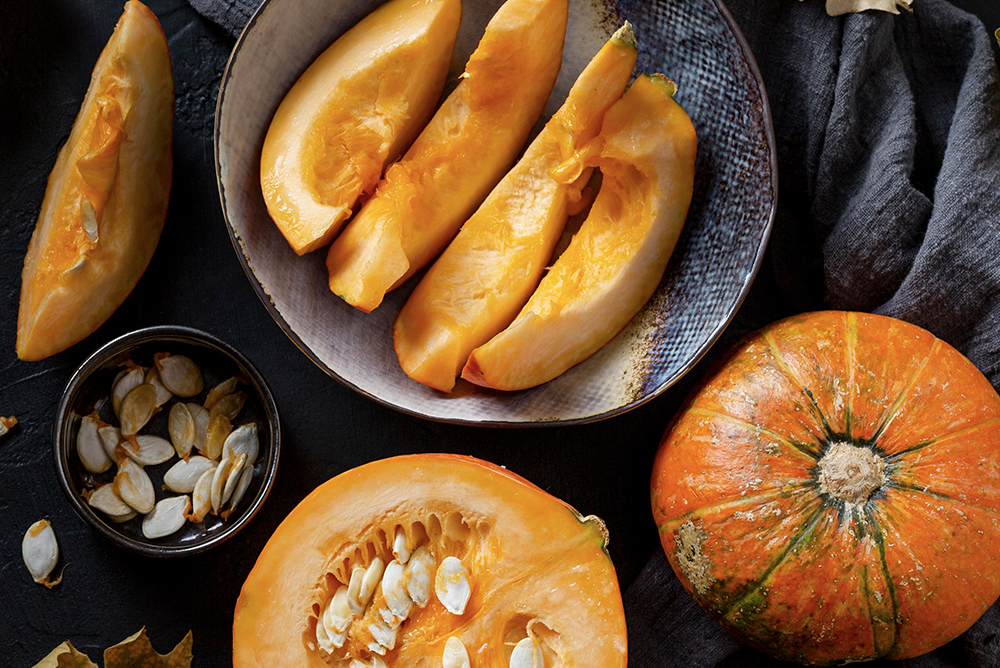
Enjoyed in soups, curries, and even stir-fries, it’s no wonder that pumpkins are considered a gourd veggie in Asian cooking, although it’s really a fruit. Also try it in an exquisite Thai custard, steamed cake, or an extra umami roast.

Probably the second most common fruit labelled as a veggie, the crunchy cucumber is no stranger to all kinds of salads around the world; while also considered a ‘cooling’ food in many Asian cuisines, enjoyed both raw and cooked. Have yours spicy, mashed, pickled, or umami!
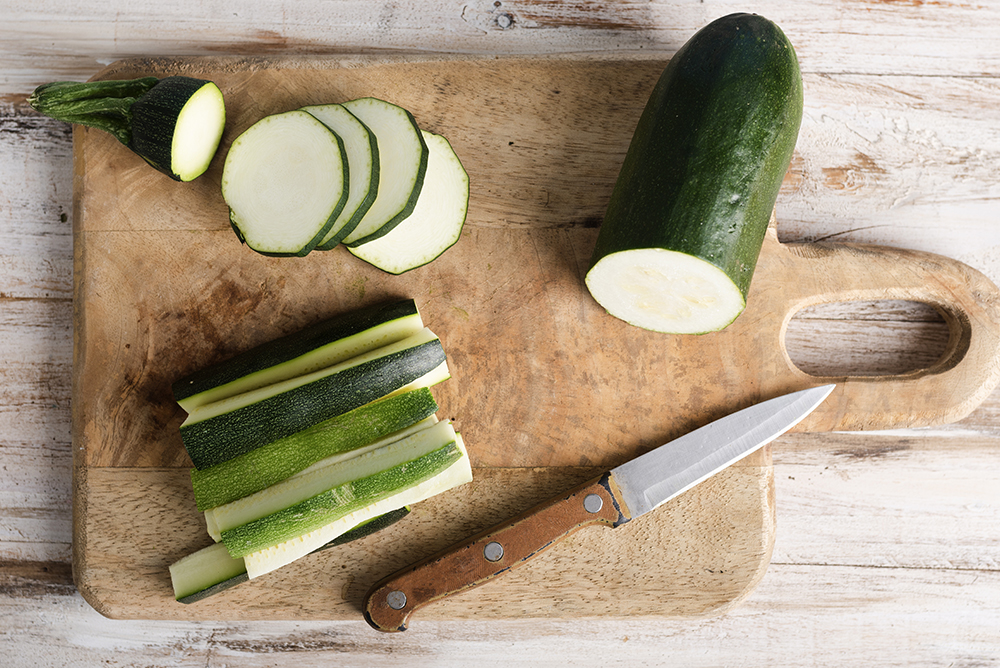
Like the cucumber, zucchini is also crunchy and juicy with a distinct ‘green’ flavour, but with a slight bitterness. Zucchini also has a firmer texture that allows it to keep its shape and crunchiness when cooked. Enjoy it in an awesome grilled Japanese special, a hearty Korean soup, or a yummy Pad Thai delight.
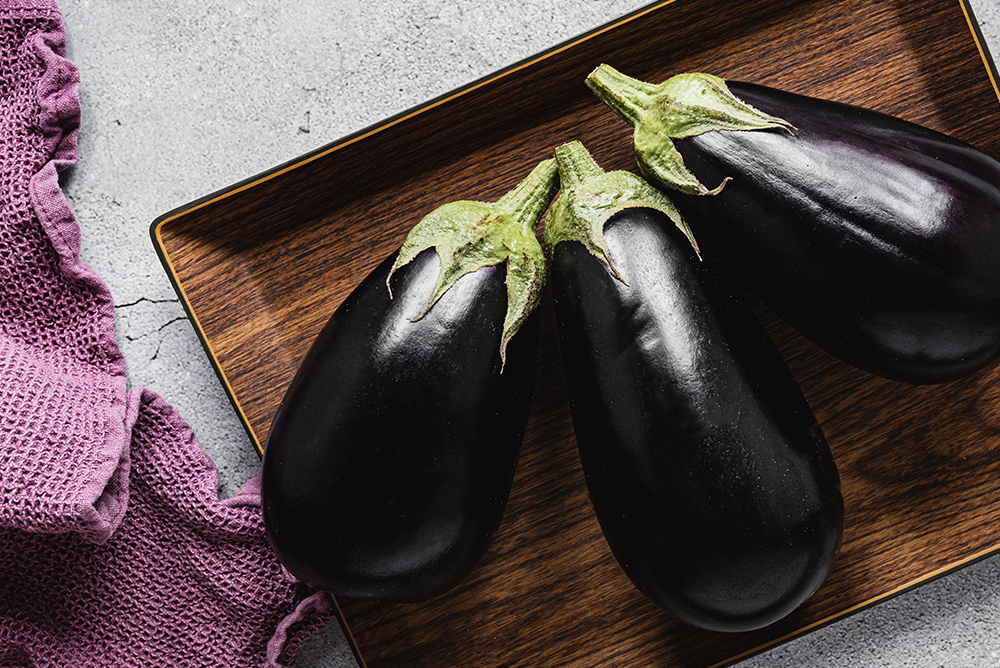
Yup, the seeds nestled in the tanned ring spots you see at the centre of your eggplants when cut, classify them as a fruit; even though they are most often enjoyed in savoury dishes for their tender, chewy texture, and subtle sweet ‘veggie’ flavour that blends well with almost any sauce or condiment. Have yours steamed and fragrant, in an easy chilled salad, or a satisfying glazed miso delight.
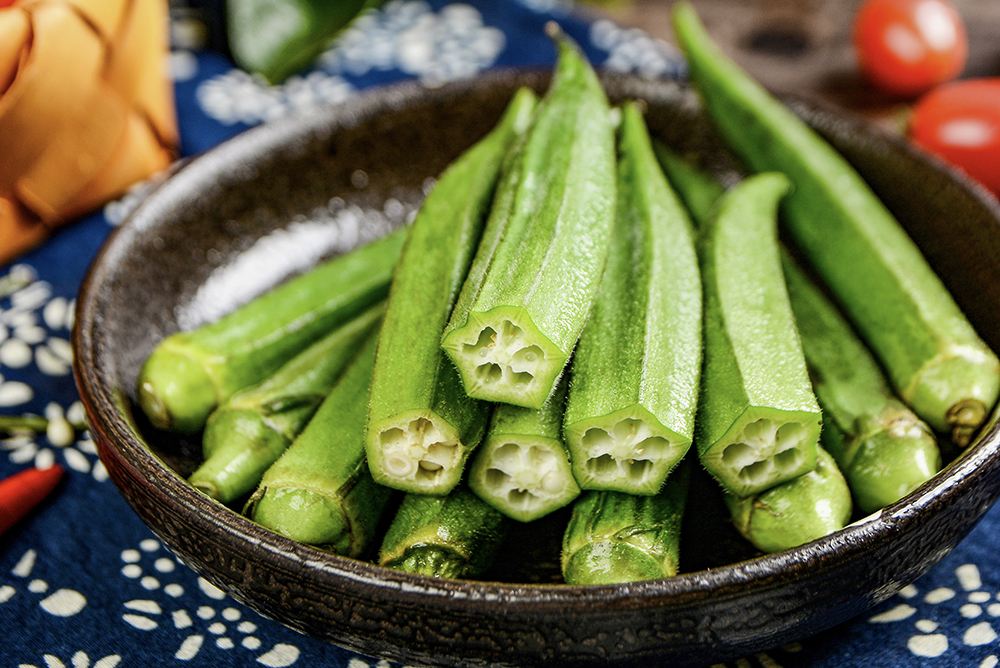
Also known as ‘Ladies Fingers’, okras are especially popular in Malaysian cuisine; enjoyed steamed and stir-fried as its own dish, the main ingredient for Yong Tau Foo, and a must-have ‘veggie’ in the spicy-sour powerhouse, Assam curry. But yes, okras are a fruit, with their tiny edible bead-like seeds snuck comfortably within each ‘finger’.
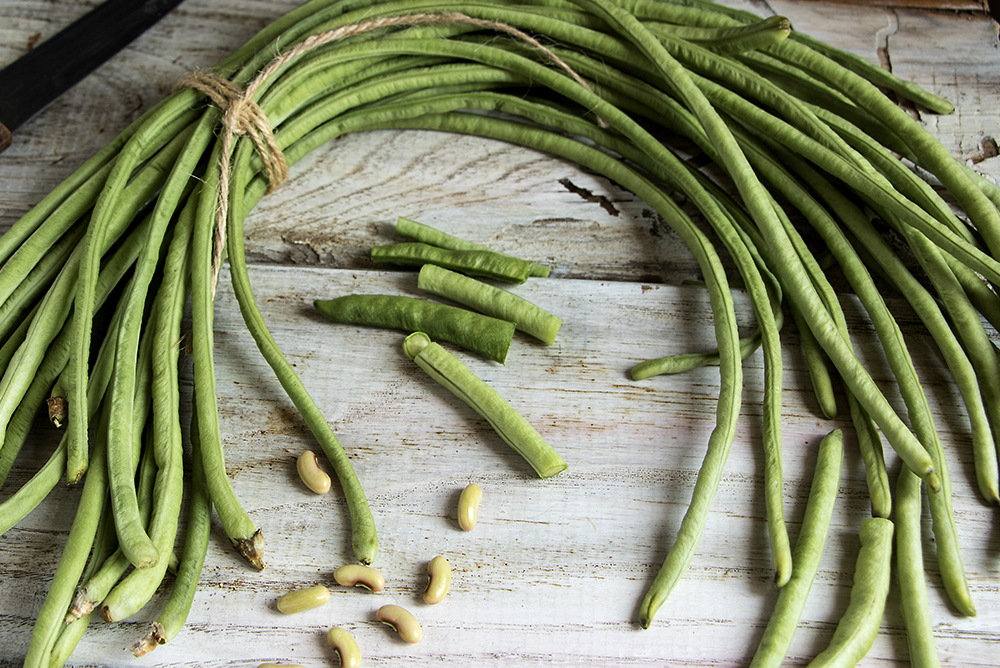
Green and crunchy like the shoots/stems of leafy greens, and especially savoured in Asian stir-fries; long beans are actually the seed-pods of its plant, and therefore, a dry fruit. In fact, all legumes which are plants with beans for seeds, are fruits in botany; including soy and other types of beans. Besides consumption, legumes are also cultivated as a soil-enriching crop, for their root nodules ability to capture and convert nitrogen into plant protein. As such, legumes like long beans are also packed with protein, dietary fibre and other healthy nutrients when cooked. Make them savoury with anchovies or tofu, or go fragrant and spicy with this Thai stir-fry delight.
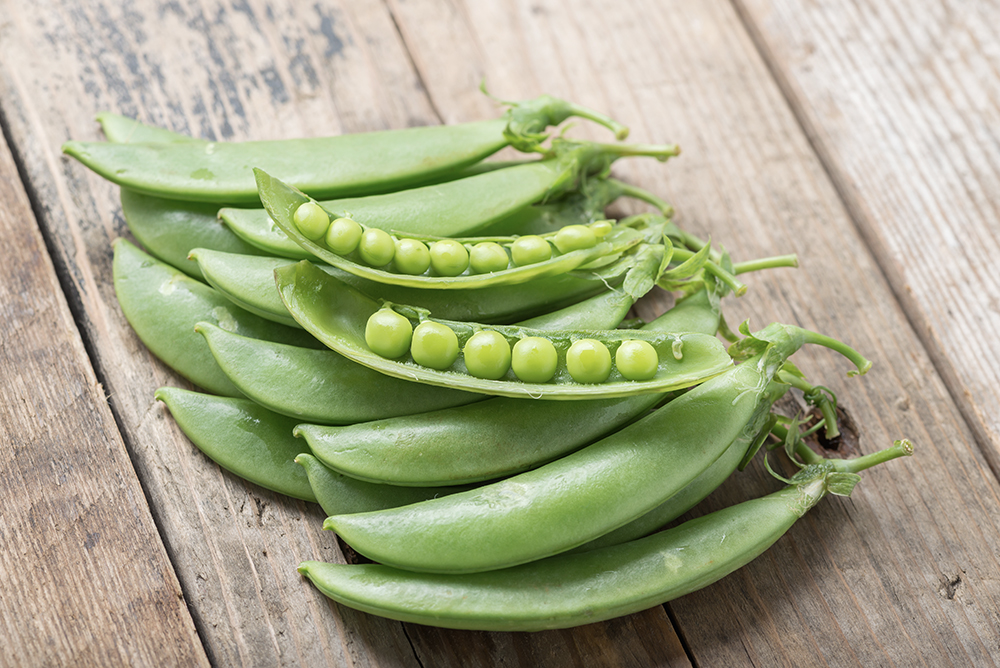
Similar to long beans, snow peas are the seed-pods of its plant, and thus, a fruit in botany. Also a great source of protein, vitamins and minerals. Enjoy yours in a wholesome green curry, an umami soba noodles salad with chicken, or a simple but sumptuous Cantonese stir-fry with beef.
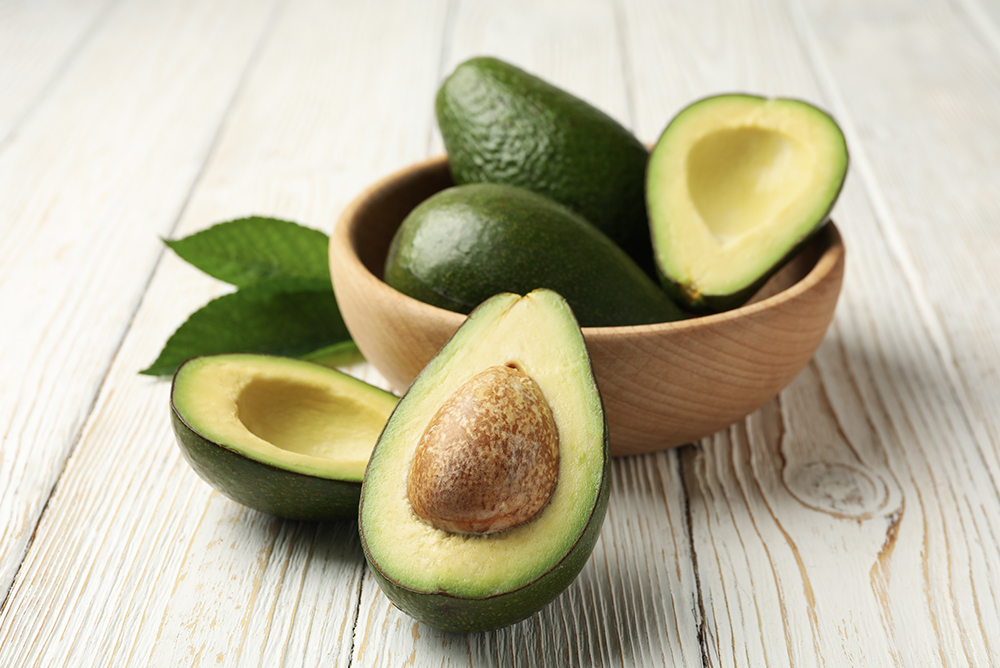
Although introduced to Asia around the late 1910s in Taiwan, the avocado has nonetheless found many delicious homes in various Asian cuisines, as well as becoming a staple of a vegan diet in recent decades.
Here’s where it gets ‘weird’: as mentioned, fruits are botanically categorized into dry and fleshy types. But fleshy fruits are further divided into Drupes, with hard pit-seeds like the peach; and Berries, with tiny seeds surrounded by flesh. As such, cucumbers, zucchinis and eggplants are actually berries. But here’s another twist, strawberries and blueberries aren’t berries in botany, because they’ve grown from flowers with multiple ovaries to become fruitlets (as in tiny fruits); while actual berries are single whole fruits grown from a sole flower ovary.
The avocado is, therefore, a unique kind of berry fruit with a single large seed. But enough with botany. Come enjoy your avocados in a refreshing, velvety smoothie; flavoursome sushi, or this amazing BBQ prawn delight that is sure to surprise!
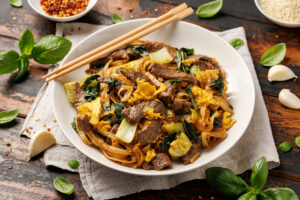
Discover how Chinese cooking has shaped the gastronomic evolution of Thai cuisine!
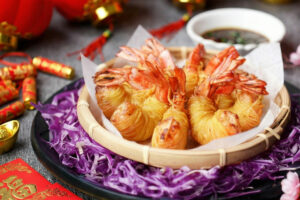
Crispy outside, savoury and tender within, these noodle-wrap prawns are sure to delight!
-300x200.jpg)
Enjoy the rosy layers of sweet Kuih Lapis with our step-by-step recipe!